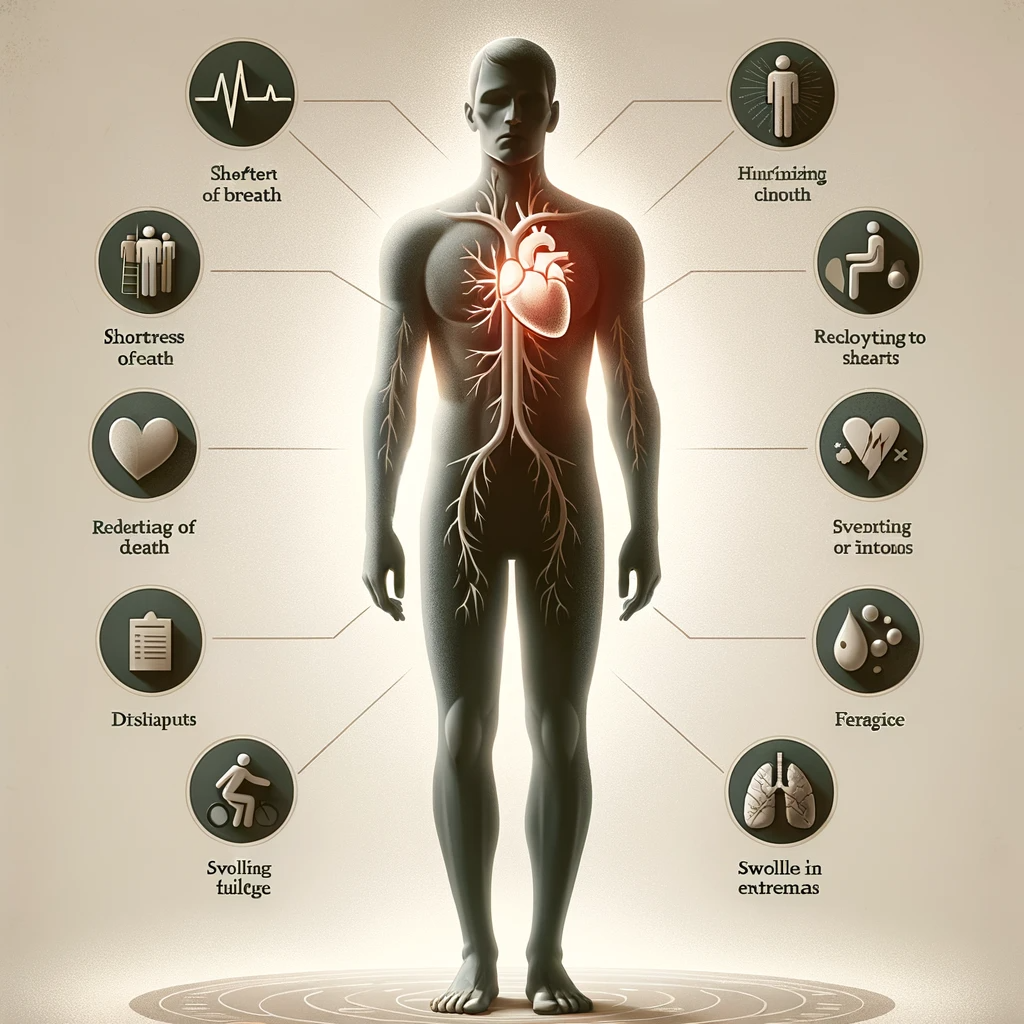Heart Congestive Failure, commonly known as Congestive Heart Failure (CHF), is a serious medical condition where the heart’s ability to pump blood is compromised. It’s crucial to recognize the symptoms early for effective management. This blog post aims to shed light on the key symptoms of heart congestive failure, helping you understand and identify this condition before it progresses.
What is Heart Congestive Failure?
Heart Congestive Failure occurs when the heart muscle doesn’t pump blood as well as it should. Conditions like narrowed arteries or high blood pressure gradually leave the heart too weak or stiff to fill and pump efficiently. Understanding the symptoms can be a lifesaver.
Key Symptoms of Heart Congestive Failure
Shortness of Breath: One of the earliest and most common signs. It may occur during activity or at rest, and is often more pronounced while lying down.
Persistent Cough or Wheezing: A cough that produces white or pink blood-tinged mucus is a potential sign of heart failure.
Edema (Swelling): Noticeable swelling in the legs, ankles, feet, or abdomen due to fluid retention is a classic symptom of CHF.
Fatigue and Weakness: Feeling tired or weak all the time can be a sign that your heart isn’t pumping effectively.
Rapid or Irregular Heartbeats: The heart may beat faster to pump enough blood to the body, leading to palpitations or irregular heartbeats.
Nausea or Lack of Appetite: Digestive issues can occur when the digestive system receives less blood, causing feelings of fullness or nausea.
Ascites: Accumulation of fluid in the abdomen, leading to swelling and discomfort.
Decreased Alertness or Concentration: Insufficient blood flow to the brain can affect alertness and mental clarity.
Increased Urination at Night: The need to urinate more frequently during the night can be related to heart failure.
When to See a Doctor
If you or someone you know is experiencing these symptoms, it’s important to seek medical attention. Early diagnosis and treatment can improve quality of life and prevent the condition from worsening.
Conclusion
Heart Congestive Failure is a condition that requires prompt attention and management. Recognizing the symptoms early can lead to timely and effective treatment, significantly impacting the course of the disease. If you suspect you or a loved one might be showing signs of CHF, consult with a healthcare professional immediately.
Remember, being informed is your first line of defense against heart congestive failure. Stay aware and take action to protect your heart health.


